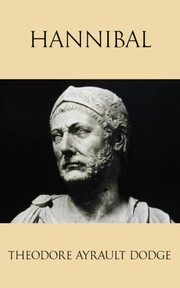
The works are detailed and, from a historiography perspective. They provide a great snapshot of military history from the late twentieth-century. You can find them repackaged on Amazon or Barnes & Noble. However, all of his works are available online for free.
Here is where you can get them:
The Campaign of Chancellorsville (1881)
A Bird’s Eye View of our Civil War (1882, later edition 1897) — This lengthy work provides an entire history of the Civil War. These sorts of histories became immensely popular during the 1880s, as the U.S. had become hungry for remembering the war.
Great Captains (1886) — Here is where Dodge ventured away from writing Civil War history by publishing a series of lectures on Alexander, Hannibal, Caesar, Gustavas Adolphus, Frederick the Great, and Napoleon.
All of the following works were originally published in multiple volumes. However, shortly after each one, Dodge released single, unabridged editions. Where available, I have listed these single editions.
Alexander (1888) — This work, like those that followed, covers much more than just Alexander. Dodge examines warfare throughout the earliest known history culminating in Alexander’s conquests.
Hannibal (1889)
Caesar (1892)
Gustavus Adolphus (1896) — Volume 1 and Volume 2.
Napoleon (1904-1907) — Volume 1, Volume 2, Volume 3, and Volume 4.
Unfortunately, Dodge passed away before he could finish his work on Frederick the Great.
Aside from free works, Dodge’s Civil War journal recently saw publication with commentary from Stephen W. Sears.
Online Learning Tips, Student Contributor
Comments are closed.